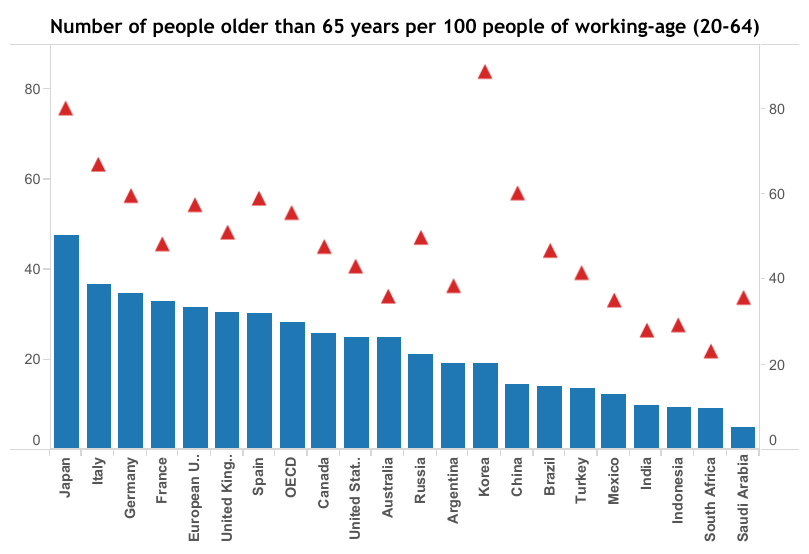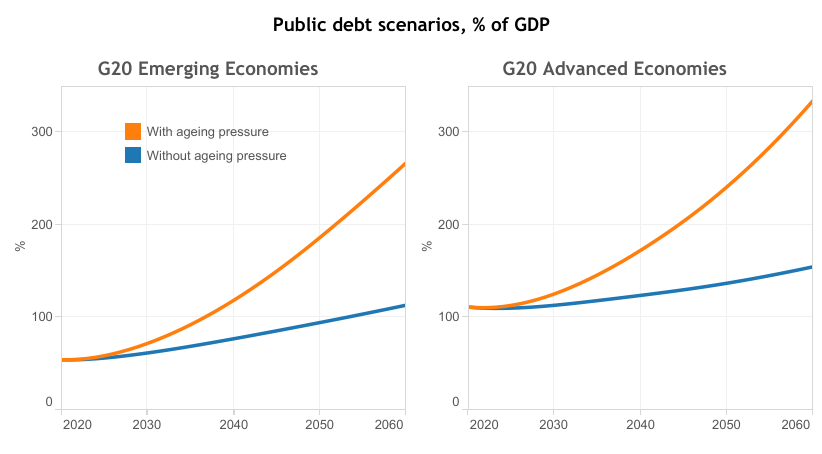Projected population ageing across G20 economies has far-reaching implications for economic growth, productivity, inequality within and between generations and the sustainability of public finances.
Old-age dependency ratios will rise in all G20 members in the next decades, although at different paces. Japan is experiencing the fastest ageing of its population, with 47 people older than 65 per 100 working-age adults in 2015, up from 19 in 1990, and rising to 80 by 2060. Among advanced G20 countries, Italy, Germany and Korea will also face some of the most significant challenges from ageing.
Rising old-age dependency ratios will put the financing of adequate pensions, health and long-term care under high pressure.
A comprehensive approach is needed to deal with ageing costs and promote inclusive growth in an era of demographic change. It should be tailored to each country’s institutional and policy settings and social preferences, and may span many areas of public policy:
- improving the design of public pensions,
- incentivising private savings,
- enhancing the efficiency of health care provision,
- expanding the coverage of social security systems,
- promoting employability and skills of older workers, and
- striving for a better labour market inclusion of women, youth and migrants.







